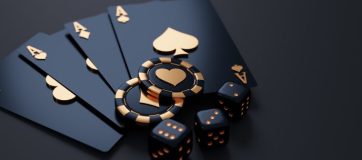Explaining the Difference in Blackjack Hands: Hard vs. Soft.
'Hard' and 'soft' refer to two distinct types of hands in blackjack, primarily determined by the presence or absence of an Ace. The Ace card, with its dual value possibility, is what sets these hands apart.
Holding an Ace makes your hand soft because of the flexibility it offers, as the Ace can count as either one or eleven.
A hard hand in blackjack means you're holding a hand devoid of an Ace, such as a King and an 8, or a pair of 4s. These hands are fixed in value, with no room for adjustment, leading to fewer options during play.
Whether you're faced with a hard or soft hand, your optimal blackjack strategy will vary.
Blackjack Soft Hand Strategies
When you have a soft hand, there's no danger of busting by taking another card, since you can always lower the Ace's value to one.
Here's a basic guide on how to approach a soft hand:
- Soft Thirteen: An Ace and a two make a soft thirteen. Generally, it's wise to hit, except when the dealer is showing a 5 or 6; in that case, you should consider doubling down.
- Soft Fourteen, Fifteen, or Sixteen: Usually, the right move is to hit. Yet if the dealer's upcard is 5, 6, or 7, doubling down is often a better option.
- Soft Eighteen: Should the dealer's visible card be a 3, 4, 5, or 6, doubling down is advised. However, if it's a 2, 7, or 8, it's smarter to stand, while a 9, 10, face card, or an Ace suggests you should hit.
- Soft Nineteen or Twenty: These hands are nearly at blackjack—always choose to stand.
Always remember that blackjack contains an inherent house edge, ensuring the casino's slight upper hand over the long haul. While applying solid strategies can boost your odds, they don't guarantee a win every time.
Blackjack Hard Hand Strategies
Strategies for handling hard blackjack hands demand more refinement due to reduced flexibility. Even so, employing the right tactics can notably decrease the house edge. Here are some pointers:
- Hand value of between 4 and 8: Hitting is recommended, irrespective of what the dealer shows.
- Hand value of 9: If the dealer's upcard is a 3, 4, 5, or 6, double down. In any other scenario, hitting is sensible.
- Hand value of 10: Should your hand total exceed the dealer's upcard, go for the double down. If not, simply hit.
- Hand value of 11: Double down.
- Hand value of 12: Hit unless the dealer shows a 4, 5, or 6, in which case, opt to stand.
- Hand value of between 13 and 16: Continue hitting unless the dealer's upcard is 6 or under, where standing is the best call.
- Hand value of 17+: Always stand.
Bear in mind that a shrewd strategy doesn't assure victory every hand, but it does enhance your prospects significantly! The guidelines shared here serve novice players well; however, keep in mind that house edge and optimal strategy can vary based on your chosen game and specific rules.




